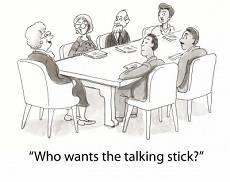October 29, 2013
Looking forward to Workplace Week; productivity and the connected organisation
There’s not much time to go before Workplace Week, which takes place from the 4th to 8th November. The annual workplace conference and fundraiser for Children in Need will include more than a dozen visits to offices in London and around the UK, a one-day convention and events staged by Kinnarps, ASOS, KPMG, Herman Miller and Colebrook Bosson Saunders. Site visits include to the public sector’s new generation of landmark buildings, Network Rail, RBS and Innocent Drinks. The theme of this year’s convention on the 5th November is Driving Productivity Through The Connected Organisation which will take place at PricewaterhouseCoopers’ offices. Speakers includes Keith Saxton, director of financial services at IBM Research; Johnny Dunford, global director of commercial property at RICS; and Liz Nottingham, Regional HR Director for Western Europe at Starcom MediaVest group.
























October 22, 2013
Germans prove that long hours and productivity are often two completely different things
by John Sacks • Comment, Workplace
(more…)